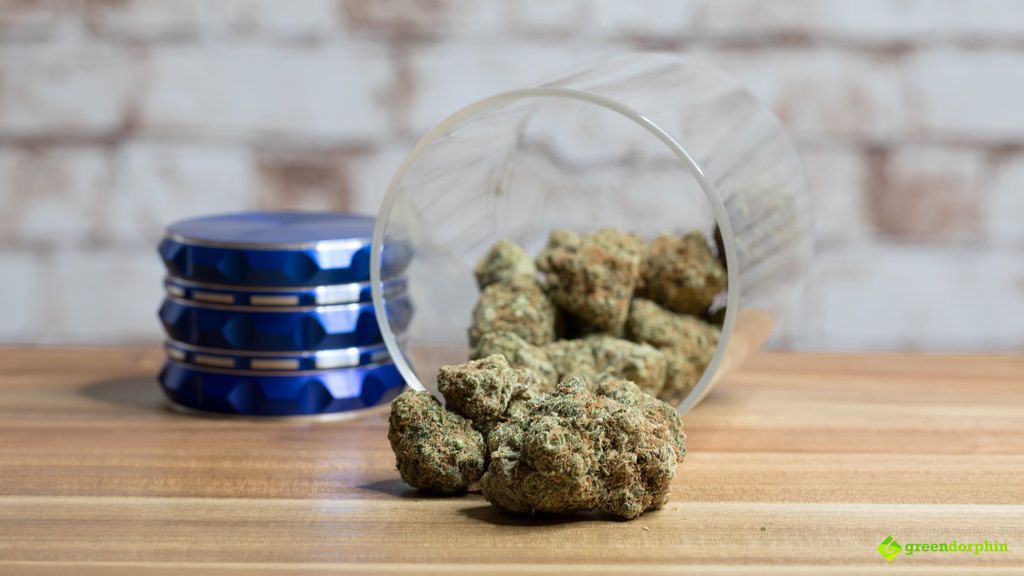Delta-8 THC is a cannabinoid that is found in cannabis. This molecule has been shown to have powerful anti-inflammatory and analgesic properties and has even been suggested as a treatment for cancer.
But before you jump onto the internet with your credit card in hand, there are some things you should know about delta-8 THC.
Let’s explore some of the other benefits of delta 8 THC and why it might be worth considering this molecule for your next cannabis purchase. If you’re considering trying this product, here are seven things you should know about this cannabinoid.
The 7 Things You Need to Know About Delta-8-THC
If you’re a beginner to cannabis, CBD, or anything related, there is going to be a lot to unpack with this article. This product might be right for you, but it might not be. Keep reading to find out if it could be a solid option for your needs.
1. Delta-8 THC: The Other Cannabinoid
Cannabis is more than just THC and CBD. In fact, there are over 100 identified cannabinoids in the cannabis plant. Delta-8 THC is one of them.
Delta-8 THC is similar to its more well-known counterpart, delta-9 THC. The main difference between the two molecules is their structure. Delta-9 THC is the active ingredient in marijuana that gets you high. Delta-8 THC, on the other hand, is only about half as potent as delta-9 THC.
This means that delta-8 THC will not get you as high as regular marijuana. However, it offers its own set of benefits that we will explore later.
2. What is Delta-8 THC?
Delta-8 THC is a cannabinoid found in cannabis plants, but unlike its more famous cousin, delta-8 THC is only mildly psychoactive.
However, it has shown some therapeutic benefits, including reducing anxiety and improving appetite.
Delta-8 THC is typically extracted from hemp plants and then purified to create a product that can be used for vaping or smoking. It is also available in edibles and tinctures, but these products are not as widely known.
3. The Benefits of Delta-8 THC
Now that we know what delta-8 THC is, let’s take a look at some of the potential benefits of this cannabinoid.
- Can help reduce anxiety – If you suffer from anxiety, delta-8 THC might be able to help. It connects with two receptor types in the human brain, which cause these effects, causing you to relax and not be so stressed out.
- Can help improve appetite – Some people love the munchies. Some don’t. If you could use a little help with your appetite, this product may ease those symptoms.
- Can help reduce nausea and vomiting – At least one study has shown that delta-8 can help lessen the nauseous symptoms related to chemotherapy.
- Can help relieve pain – If you suffer from pain, delta-8 THC might be able to help. Once again, this comes from the product easily connecting to CB1 and CB2 receptors.
- Can help improve your mood – These combined effects may put you in a better mood. There could be a connection between this and the rest of the benefits.
4. Responsible Use
Delta-8 THC is typically consumed by smoking or vaping. It is also available in edibles and tinctures, but these products are not as widely known.
If you’re considering trying delta-8 THC, be sure to start with a low dose and increase gradually as needed.
Delta-8 THC is a potent cannabinoid with many potential benefits. However, it is important to remember that this product is not for everyone. Be sure to talk to your doctor before starting any new supplement, especially if you have a medical condition.

5. The Side Effects of Delta-8 THC
Though it is not as well-known as its more potent counterpart, Delta-8 THC is a cannabinoid that is found in Cannabis sativa plants. Unlike Delta-9 THC, which is the primary psychoactive compound in marijuana, Delta-8 THC is only about half as potent.
However, Delta-8 THC has some psychoactive effects and can also cause some side effects. The most common side effect of Delta-8 THC is anxiety.
Some people also experience dry mouth, dizziness, and paranoia. In large doses, Delta-8 THC can cause hallucinations and delusions. It is also important to note that Delta-8 THC can interact with other medications, so it is essential to talk to a doctor before taking it.
It’s important to remember that we’re all different. Delta-8 may be perfect for you, but the opposite experience could happen to someone you know.
6. Will Delta 9 Test Positive for THC in a Drug Screening?
Delta-8 is legal because it’s derived from hemp, but you might flunk a drug test if it’s in your system. However, it may not be for the reason you believe. It also depends on the type of drug test being utilized and other factors.
The amount, frequency, metabolism and weight, gender, age, and other factors all play a role. It’s critical to understand how drug tests for THC function. However, most individuals believe the tests are looking for delta 9 THC metabolites.
Instead of specific cannabinoids, most drug tests look for THC metabolites. Delta-9 is one example of a metabolite that may be found in urine samples.
Metabolites produced by cannabis may be detected after use, particularly in the urine, since they are kept in our fat cells. Your result could be considered a false positive if there is no actual delta-9 THC present in your body. If you’re using a pure delta 8 product with less than 0.3 percent delta 9 THC content, you could possibly explain this situation away.
But if you’re dealing with legal matters, it’s probably best to err on the side of caution and stay away from anything that could make your situation worse. Don’t worry. Delta-8 will still be here when you’re free and clear to enjoy life as you see fit.
7. Is It Legal?
The short answer is yes, as of the 2018 Farm Bill. The long answer is a bit more complicated.
Since it’s derived from hemp, delta-8 is legal under federal law. However, some state laws may differ.
It’s also important to remember that, while delta-8 is legal, it is not regulated by the FDA. This means there are no quality control standards for products containing delta-8. So, be sure to do your research and only purchase products from reputable sources.
CBD VS. Delta 8 – How They Are Different
CBD and Delta-8 are both cannabinoids that are found in hemp plants. However, they have some significant differences.
For one, CBD is non-psychoactive, while Delta 8 THC is psychoactive. CBD will not produce the “high” associated with marijuana use, while Delta-8 THC can.
Additionally, CBD is legal in all 50 states (kind of), while Delta-8 THC is only legal in some states. And as mentioned before, Delta-8 THC is not regulated by the FDA, so there are no quality control standards for products containing it.
So, if you’re looking for a cannabinoid that will produce a psychoactive effect, Delta-8 THC is the one you want. But, if you’re looking for a cannabinoid that is legal in all 50 states and is subject to quality control standards, CBD is the better choice.
Delta-8 Edibles VS. Delta-8 Vaping – How They Are Different
Edibles and vaping are two popular ways to consume Delta-8 THC. But how do they differ?
Well, for one, edibles take longer to take effect than vaping. This is because edibles must be digested before the Delta-8 THC is absorbed into the bloodstream.
Additionally, edibles tend to produce a more robust and longer-lasting high than vaping. This is because when Delta-8 THC is consumed in edible form, it is converted to 11-hydroxy-THC, which is more potent than the Delta-8 THC you initially ingested.
So, vaping is the way to go if you’re looking for a quick and short-lived high. But edibles are the better choice if you’re looking for a stronger and longer-lasting high as well as potential medicinal effects.
Conclusion
To summarize, Delta-8 THC is a cannabinoid that has been shown to have potent anti-inflammatory and analgesic properties. It is legal under federal law, but state laws may differ. Delta-8 THC is psychoactive and not regulated by the FDA.
Edibles and vaping are two popular ways to consume Delta 8 THC, but they differ in terms of onset time and duration of effect.
Thanks for stopping by and reading today’s post. If you have any questions or want to add something to the conversation, feel free to drop a comment below.
- The Ultimate Guide to Delta 8 Disposable Vapes: What You Need to Know - March 8, 2024
- The Environmental Impact of CBD Production - August 28, 2023
- Cannabis In Thailand: A Green Revolution - August 15, 2023


